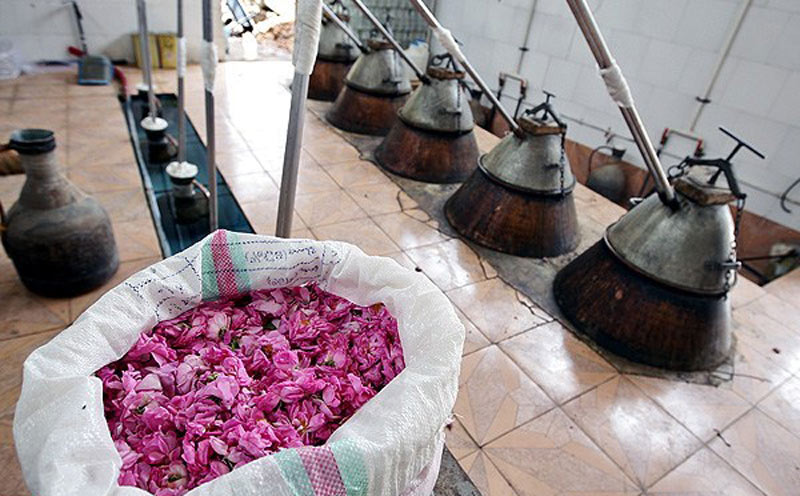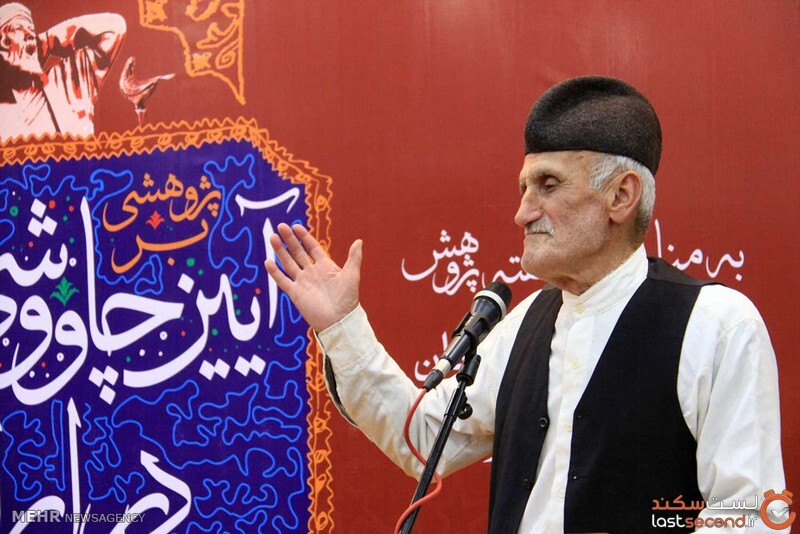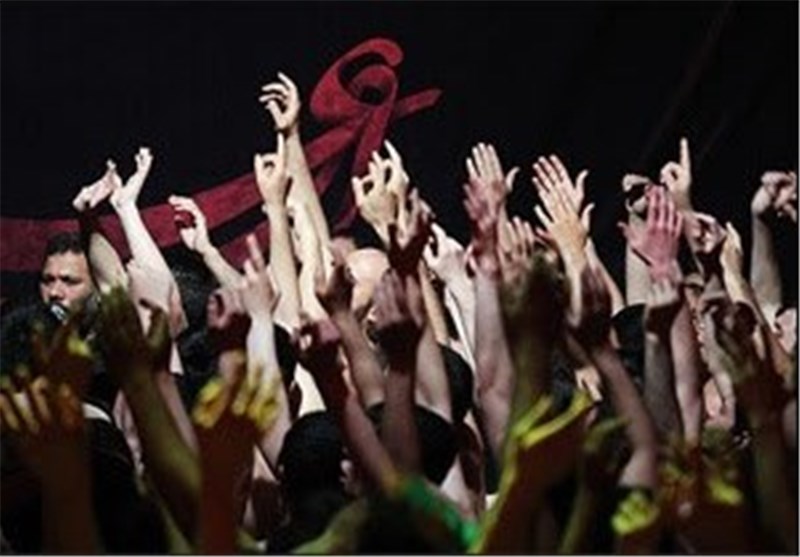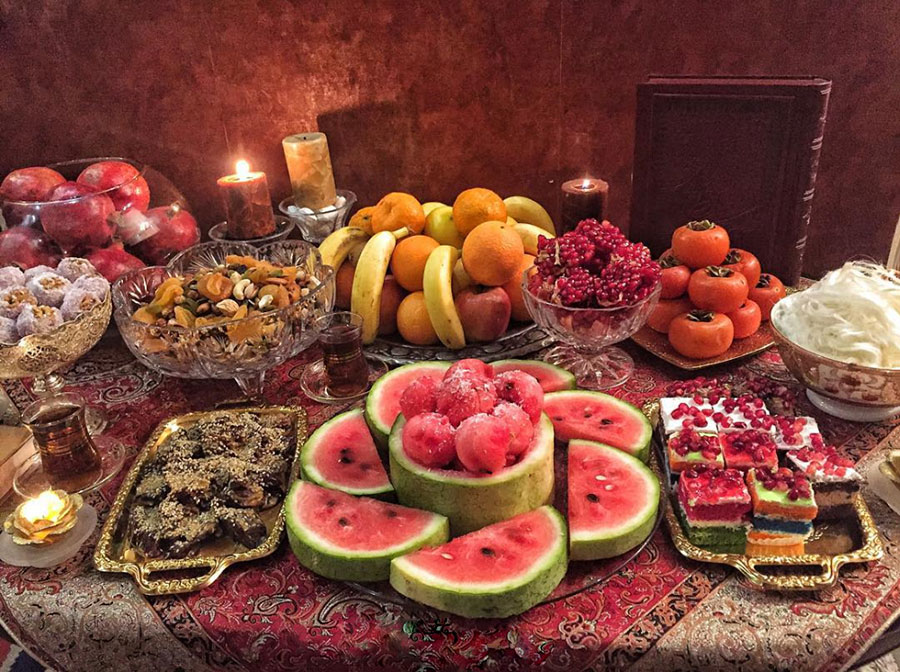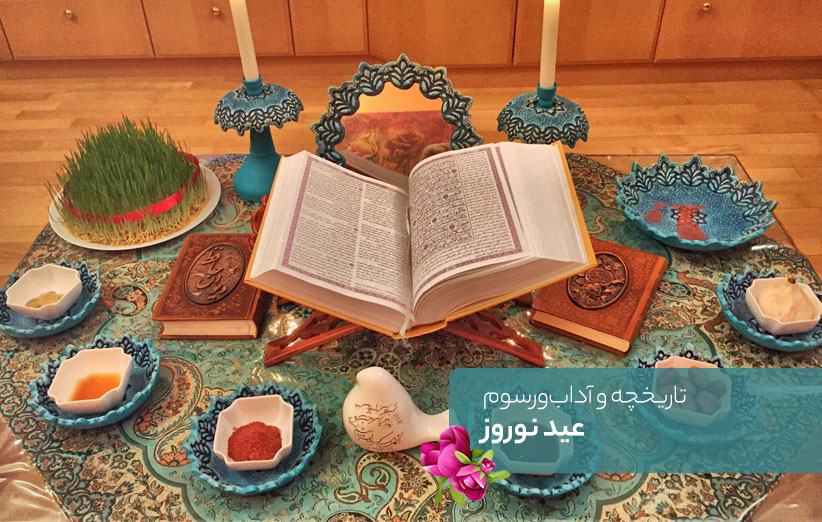Total: 0Toman
The Story of Asli and Karam
The story of Asli and Karam is considered to be the greatest oral heritage of the Azarbaijani people, which is narrated by Ashiqs/Ashiks in gatherings and in the form of a folklore song
Traditional Attire of the People of Azarbaijan
The traditional attire of the people of East Azarbaijan people of Iran is the manifestation of various aspects of the culture of the nomads and rural people of this province
History and traditions of polo, an ancient Iranian game
Polo is one of Iran’s inscribed elements on the UNESCO World Heritage list, a sport whose origins date back to the first millennium BCE.
Qaen pottery breaking ceremony, a symbolic ritual on the threshold of the New Year
The pottery-breaking ceremony of Qaen is held on the verge of the end of the year and the arrival of the new year a ceremony in which many symbols are seen.
Iranian coffeehouse, a social institution with specific traditions
Iranian coffeehouses came into existence in the 16th century and, throughout their centuries-long existence, have fostered traditions and arts.
Traditional Clothing of Iranian Zoroastrians
Zoroastrian men often wear white clothes, while the traditional garments of Zoroastrian women are quite colorful
Esfandi Custom of Meybod
”.The People of the Meybod City of Iran give a gift to newly wedded brides, which is known as “Esfandi
Ta’zieh In Toot Village of Yazd
One of the features of the Ta’ziyeh of Toot Village, which led to its inscription on the list of Iran’s national heritage, is the preservation of authenticity and the traditional way of performing it
Sangsari Tribe of Iran
The Sangsari Tribe of Iran engages in a nomadic migratory lifestyle in the north and northeast regions of Iran
Yarun Ceremony of Aqda
Yarun is an ancient custom the people of Aqda City perform to mourn the martyrdom of Imam Husayn (AS) and his faithful companions.
Mid-Sha’ban Ceremony in the Ahmadadabad City of Ardakan County
On the eve of the 15th day of the month of Sha’ban, the people of Ahmadabad of Ardakan welcome the grand Mid-Sha’ban festivity by giving sweets and gifts to their children.
Eid al-Adha Eve in Khvorvandeh Village
On the eve of Eid al-Adha, the people of Khvorvandeh Village gather next to the spring they consider to be blessed and perform a special ritual.
Qalishuyan
An annual ceremony held by the people of Kashan to convey the message of standing by truth and defending the oppressed.
Eid al-Ghadir in Faragheh Village of Abarkuh
Faragheh is one of the green villages of Abarkuh County, which is famous for its rituals performed on the day of Eid al-Ghadir.
Takhtehzani of the People of Firooz Salar Village
Takhtehzani is a mourning ceremony held in Firooz Salar village in the afternoon of Tasu’a.
Iranian Lullabies
Lullaby is one of the richest elements of the intangible cultural heritage and oral literature of Iranian communities.
Thanksgiving Ceremony in Hizaj Village of Hamedan
It has been more than 300 years that the people of Hizaj Village of Qahavand County, Hamedan Province, hold a ceremony of thanksgiving around mid-May for the ever-flowing spring of this village by cooking rice pudding and asking God for blessing of their crops.
Shabih Khwani in Bkhshayesh
Every year, tens of thousands of people attend the Shabih Khwani ceremony in Bakhshayesh City of East Azarbaijan.
Shahnameh Khwani
The custom of “Shahnameh Khwani” (lit. reciting the stories of Ferdowsi’s book, Shahnameh) has been very popular among Iranians and is considered to inspire the spirit of chivalry, morality, and bravery.
Oral Culture of the Grand Bazaar of Tehran
The Grand Bazaar of Tehran has a long history and the oral culture prevalent in it is the manifestation of the beliefs of Iranians in business and social relations.
Golvani
Golvani is a special piece of cloth that women of the Lak tribe use as a headband and their men have different uses for it.
Nosal Festivity
The Touye Village of Damghan is famous for its ancient history and old rituals one of the most important of which is the “Nosal” Festivity.
The Festival of Pir Shalyar
The festival of Pir Shalyar is a traditional ceremony, which is the symbol of empathy among the Kurdish people of Iran.
The Story of Asli and Karam
The story of Asli and Karam is considered to be the greatest oral heritage of the Azarbaijani people, which is narrated by Ashiqs/Ashiks in gatherings and in the form of a folklore song.
The Polkeh Gardani ritual, a unique mourning ceremony of the people of Shishvan in commemoration of Imam Hussein
The Polkeh Gardani ritual can be considered one of the most unique ways Iranians mourn during Muharram.
The harvest ceremony of Saghay village, an ancient ritual intertwined with spiritual beliefs.
In the harvest ceremony of Saqay village, the people of the village gather together and socialize before starting the harvest the next day.
Timcheh Mozaffarieh, Tabriz، Symbol of Muharram Mourning in Tabriz
The Mozaffarieh Bazaar in Tabriz can be considered the symbol of the city’s Muharram mourning ceremonies.
Bayatilar, the folk couplets of Azerbaijani speakers
Bayatilar is an important part of the oral culture of the people of Azerbaijan, which has been formed over the centuries and passed down from generation to generation.
Maragheh's Ashura rituals, the most important manifestation of the city's culture and history.
Maragheh is an ancient city in northwestern Iran where special ceremonies are held to commemorate Muharram.
Local calendar of East Azerbaijan, a lasting legacy
The local calendar of East Azerbaijan can be considered one of the manifestations of the oral culture of the people of this land, which has evolved over the years.
The village of Ansarud and the gratitude of its inhabitants to nature in the shepherd ceremony.
Every year, on the first day of autumn, the people of Ansarud village give thanks during the Shepherd Ceremony for the prosperity of their agricultural products and livestock.
The skill of dismantling and erecting a nomadic tent, a heritage born of nature.
Over the centuries, the nomads of East Azerbaijan have developed unique and interesting methods for dismantling and erecting nomadic yurts.
Heydar Babayeh Salaam
The poem Heydar Babayeh Salaam, which is popular throughout the Azari-speaking lands, is a great and lasting legacy of Shahriyar, a contemporary Iranian poet.
Alam Gardani in Siah Saran Village
Alam Gardani is a ceremony held in the first decade of the month of Muharram participated by the residents of the three villages of Siah Aaran, Zaviyeh, and Livarjan in Jolfa County.
Tati Language of Karingan Village
Although the Azari language is presently spoken in most regions of the Azarbaijan provinces of Iran, the Tati language was widely spoken in some of these regions in the past, and it is still spoken in the Karingan or Keringan Village of East Azarbaijan Province.
The Story of Asli and Karam
The story of Asli and Karam is considered to be the greatest oral heritage of the Azarbaijani people, which is narrated by Ashiqs/Ashiks in gatherings and in the form of a folklore song.
36th Day of the Spring in Esfanjan
The people of Esfanjan celebrate the 36th day of the spring by sacrificing a cow and making Kooftef Tabrizi (Tabrizi Meatball) with its meat.
Takam Gardani
Nowruz is the ancient festivity of Iranians during which special customs are observed for celebrating it in different parts of Iran. Takam Gardani is a folklore custom that the people of Iran’s Azarbaijan perform to welcome Nowruz.
Allah Allah Husaina Veina Mourning Ceremony in Maragheh
The people of Maragheh mourn the martyrdom of Imam Hussain (AS) in the “Allah Allah Husina Veina” ceremony they hold on the morning of Ashura by wearing the attire of the Hajj pilgrims.
Arasbaran Nomads
Arasbaran nomads have had an active role in the history of Iran and are known as the original tribes of the Azarbaijan region.
Azari Dance
Having a history of eight thousand years the Azari dance includes certain spiritual and religious aspects.
Armenian Annual Ceremony Held at Saint Thaddeus Monastery
Saint Thaddeus Monastery - called Qarah Kelisa in the Azari language - is very important for Iranian Armenians and every year a grand ceremony is held in it with the presence of Christians from all over the world.
Traditional clothing of East Azerbaijan, a national intangible heritage of Iranians
The traditional clothing of East Azerbaijan reflects various aspects of the culture of the nomads and villagers of this province.
Epic of Koroghlu
The Epic of Koroghlu is the story of the struggles of a young boy by the name of “Roshan” against the tyrannical ruler of his time, which, according to experts, is rooted in a real event.
Vassunak
Vassunak is a traditional folklore song in the Fars Province of Iran, the content of which is composed of short common lyrics and is usually sung at weddings.
Muharram In Yazd
Muharram is the month in which Iranians commemorate the martyrdom anniversary of Imam Husain (AS).
Nakhl Gardani
Nakhl Gardani (also called Khal Bardari) is a symbolic ritual performed by the people of Yazd to commemorate Imam Husain’s (AS) martyrdom on the Day of Ashura and although this ritual is performed in several central regions of Iran, Yazd is considered its origin.
Kurdish Traditional Clothing
Kurdish traditional clothing has been formed according to the culture and geography of the Kurdish people and Kurdish women’s clothes are quite unique in terms of beauty.
The View of the People Shiraz about Seville Orange Tree
The people of Shiraz highly honor and respect the “Seville Orange Tree” and observe certain special customs in handling it.
Ramadan in Yazd
Fasting in the month of Ramadan is accompanied by certain special customs in Yazd.
Yalda
“Yalda”, which is of Syriac origin and means rebirth, is the name that Iranians have given to the longest night of the year and the last night of autumn, and they have been honoring it since eight thousand years ago.
The History of Nowruz
Nowruz marks the beginning of spring and the new year for Iranians and they have been celebrating it since ancient times.
Welcoming Nowruz
Nowruz is an ancient Iranian festivity, which is celebrated by Iranians and special customs to welcome the New Year.
Haft sin
Haft-sin is a special arrangement symbolizing the Iranian New Year (Nowruz), which is beautifully designed and comprises seven things starting with the letter “sin” of the Persian language alphabet.
Golabgiri (Making Rosewater)
Golabgiri is an interesting ancient ceremony of Iran - as the birthplace of rosewater production in the world - dating back to about one thousand years ago.
Shab-e Yalda (Yalda’s night)
Shab-e Yalda (Yalda’s night) or Shab-e Chelle is the Iranians’ way to confront the coldest season of the year. This Iranian festival, which is celebrated every year on the night of December 20/21 (±1) in the Gregorian calendar, has a very long history and is among the most important Iranian festivals and ceremonies.
Nowruz
Nowruz (literally translated New Day) is one of the oldest celebrations in ancient Persia, which is held vigorously in the first day of spring marking the beginning of the Iranian calendar (21 March).
Celebration of Mid-Shaban
Mid-Sha'ban is the 15th day of the eighth Islamic month (Shaaban) of the Islamic lunar calendar. The Twelver Shias spend the entire night (from Sunset till dawn) of the 15th of Sha'ban performing prayers and recitations of the Holy Quran. This day also marks the birthday of the twelfth Imām, Muhammad al-Mahdi (p.b.u.h.).
Celebration of Ramadan
(Community iftars and Community prayers) Ramadan, also spelled Ramazan, Ramzan, Ramadhan or Ramathan, is the ninth month of the Islamic calendar, observed by Muslims worldwide as a month of fasting, prayer, reflection and community
Iranian customs
There are three major national festivals (religious festivals not included) being celebrated nationwide every year. These festivals have their roots in Iranian customs and ancient culture and are celebrated over the centuries. There is a common concept among all these festivals: emphasizing the value of the family and friendship.
Carpet-Washing Ceremony (Qali-Shouyan in Persian) of Mashhad-e Ardahal
The carpet-washing ceremony of the Fin region of Kashan county and Khaveh Ardahal village in “Mashhad-e Ardahal” is one of the ancient mourning ceremonies of this region, which is held on the second Friday of autumn every year, commonly known as the “Carpet Friday”, to commemorate the anniversary of the martyrdom of Sultan Ali ibn Imam Mohammad Baqir (as).
Nowruz Sabzeh: Green Sprouts
As a traditional custom the people of Iran plant grains of wheat and/or lentil in pots as a sign of divine blessing and abundance in the New Year (Nowruz), which turn into green sprouts and are placed on the Nowruz table.
Sienhzani (Chest-Beating)
Sinehzani (in Persian) or Chest-beating is a ceremony performed as a sign of mourning for the Shiite Imams, especially Imam Hussain ibn Ali (as) in groups or in mosques and in Husayniahs.
Sizdah Be-dar (lit. Thirteenth Day Outdoor)
The last day of the Nowruz celebrations, which takes place on the 13th day of the month of Farvardin (the first month of the Iranian calendar) is called “Sizdah Be-dar” or “Nature’s Day” by the people of Iran.
Chavosh-Khawni
The custom of singing religious poems in a loud and melodious voice in praise of the Prophet of Islam (pbuh) and his family in front of pilgrims in the course of their pilgrimage.
Sizdah Bedar (the thirteenth day of Farvardin)
Sizdah Bedar is the thirteenth day of Farvardin and one of the Nowruz celebrations of Iran. In the official calendars of Iran, after the revolution, this day has been named Nature Day and is an official holiday.
Yalda Night
Yalda Night or Chelleh Night is one of the oldest Iranian festivals. In this celebration, the passing of the longest night of the year and the subsequent lengthening of days in the Northern Hemisphere, which coincides with the winter solstice, are celebrated.
Carpet Washing Ceremony (Qali-Shuyan)
The traditional and religious carpet washing ceremony of Fin Kashan and Khaveh Ardehal village, which is held every year on the second Friday of October in Mashhad Ardehal, 42 kilometers west of Kashan, is the only Islamic religious ceremony that is held according to the solar calendar. In this symbolic ceremony, participants from the Fin region gather to hold the event.
Golabgiri
Golabgiri is a traditional ceremony held annually in 14 provinces of Iran, mainly from early Ordibehesht to late Khordad
Chavush-Khani
Chavush-Khani is the practice of reciting religious poems in a clear and melodic voice in praise of the Prophet (PBUH) and his family, ahead of pilgrims.
(Chest-beating (sineh-zani
Chest-beating (sineh-zani) is a traditional act of mourning performed in mourning groups or in mosques and tekyeh (religious halls)
Yalda Night
The name of the last night of autumn and the first night of winter — the longest night of the entire year, after which the nights become shorter and the days grow longer.Yalda: Written by Ali Bolukbashi
Customs and Traditions of Nowruz
The customs and traditions practiced during festivals reflect the culture and civilization of different nations


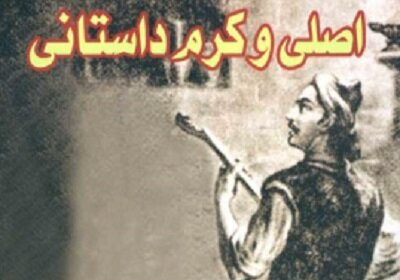
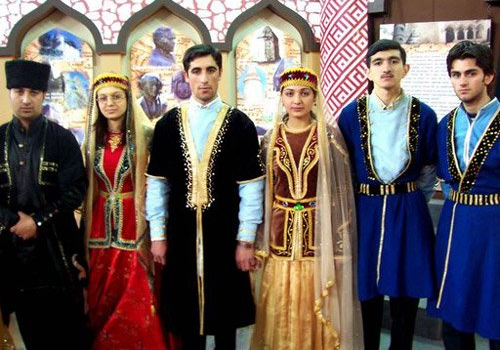
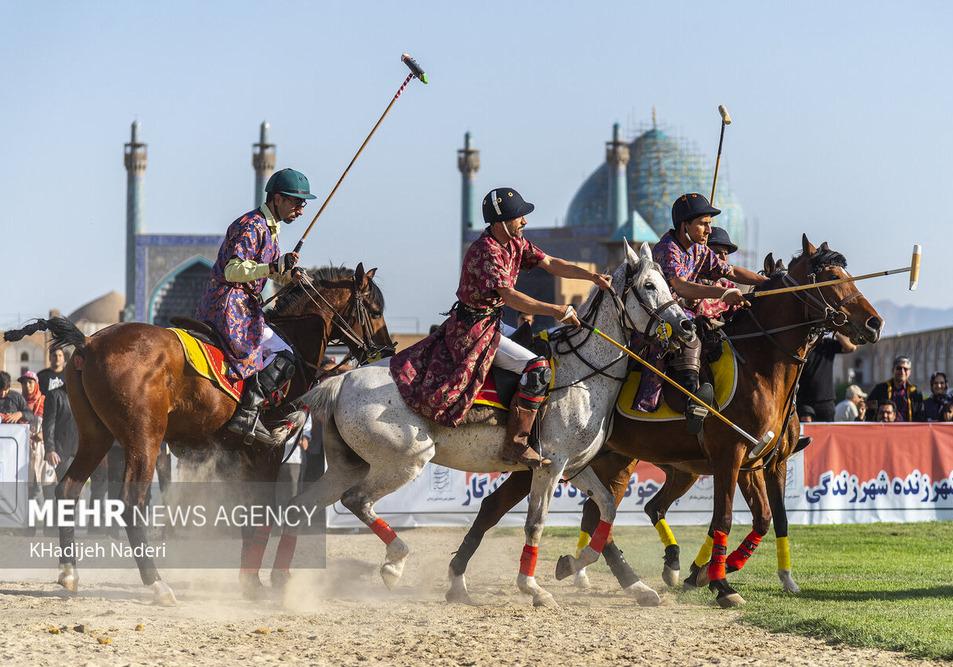
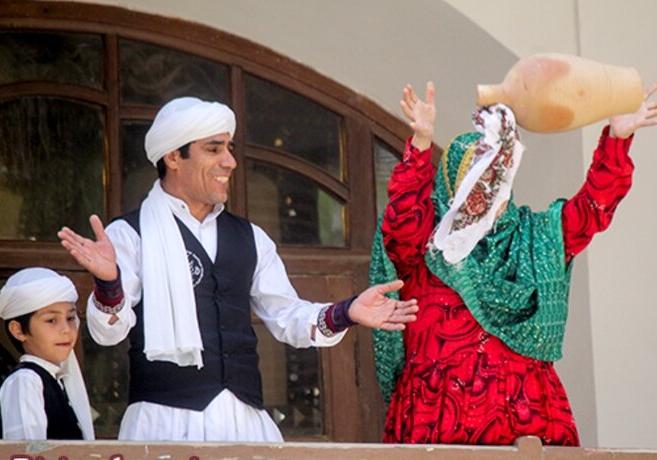
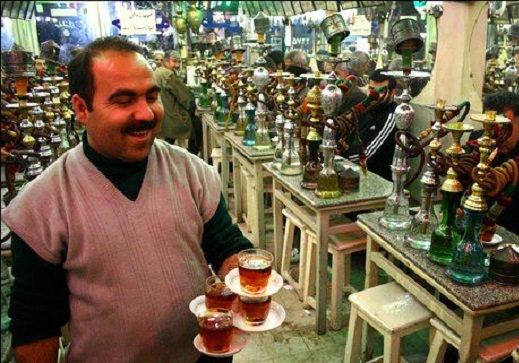
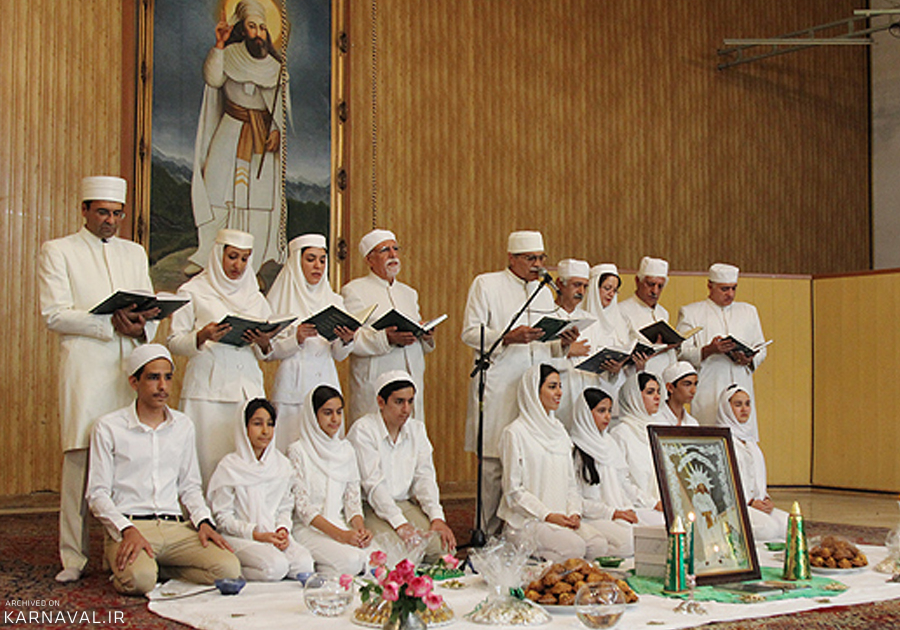
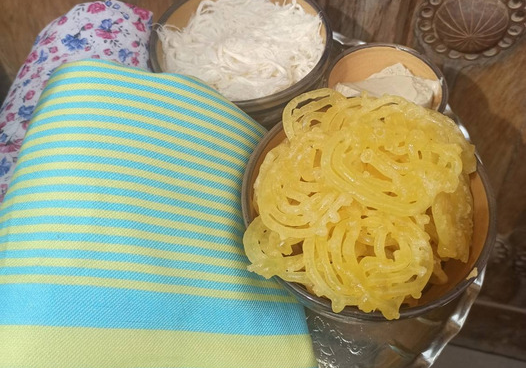
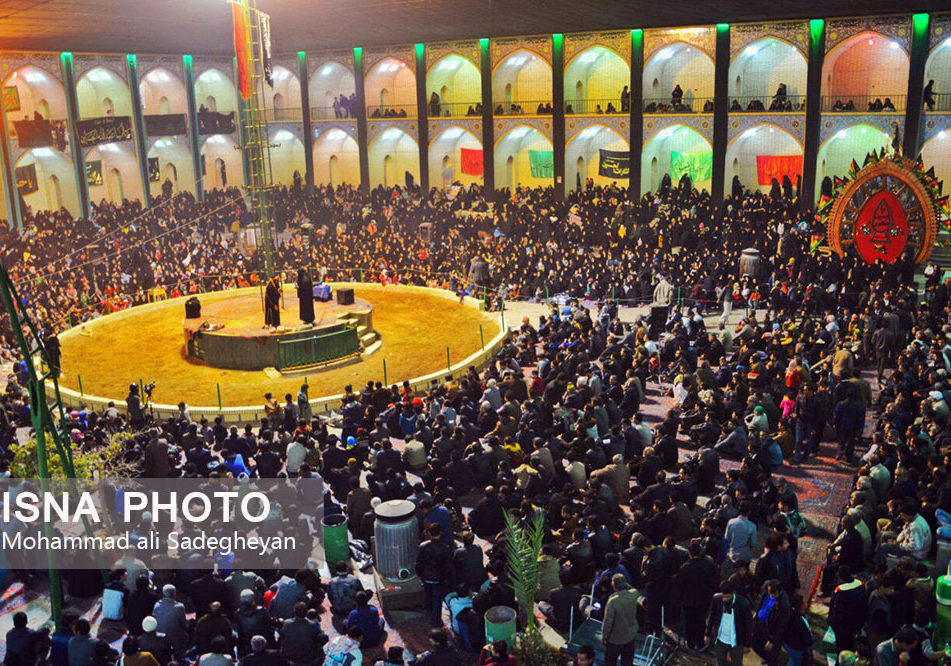
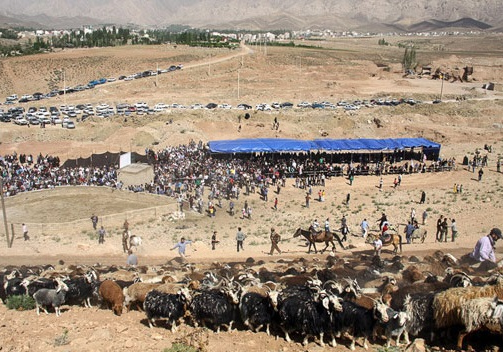
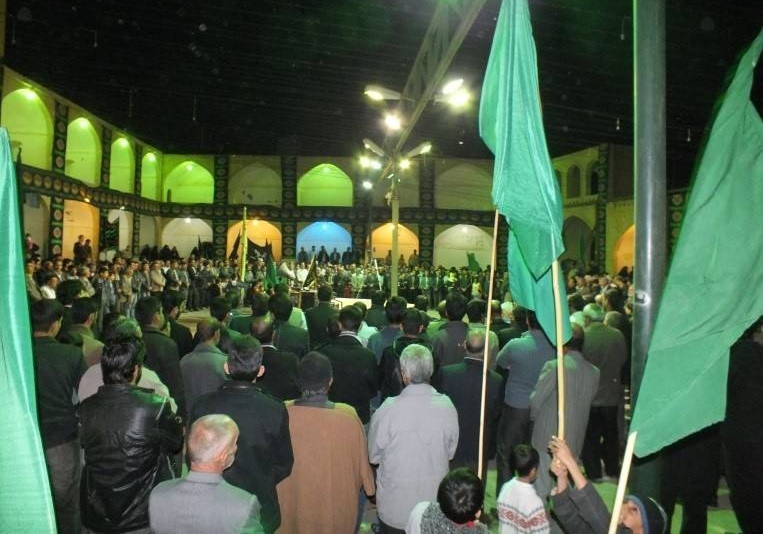
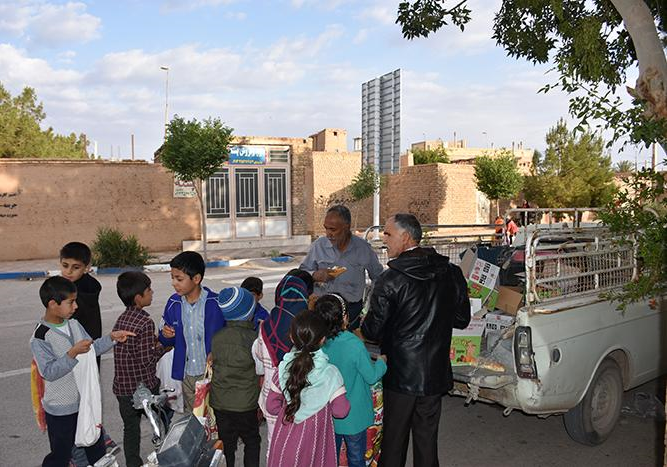
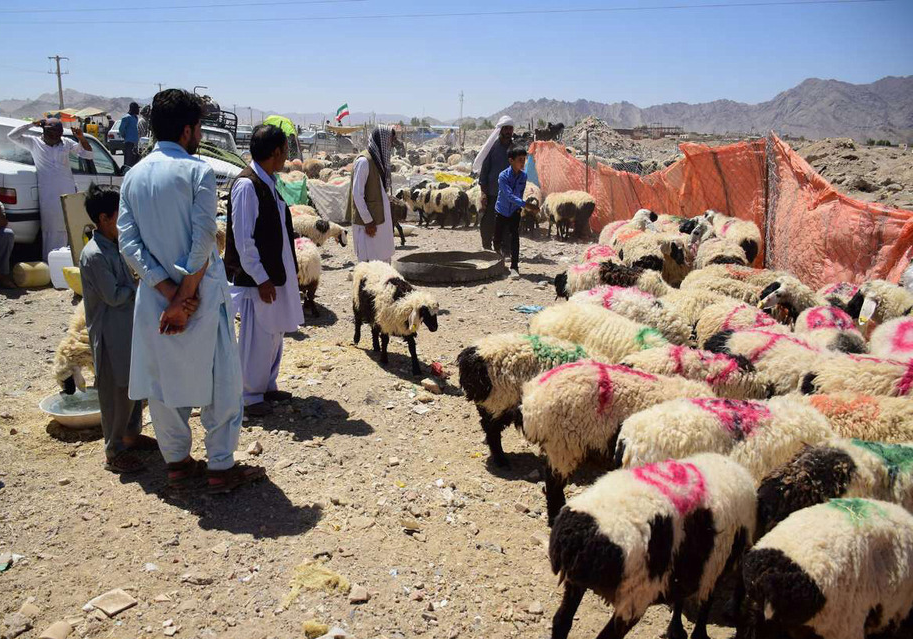
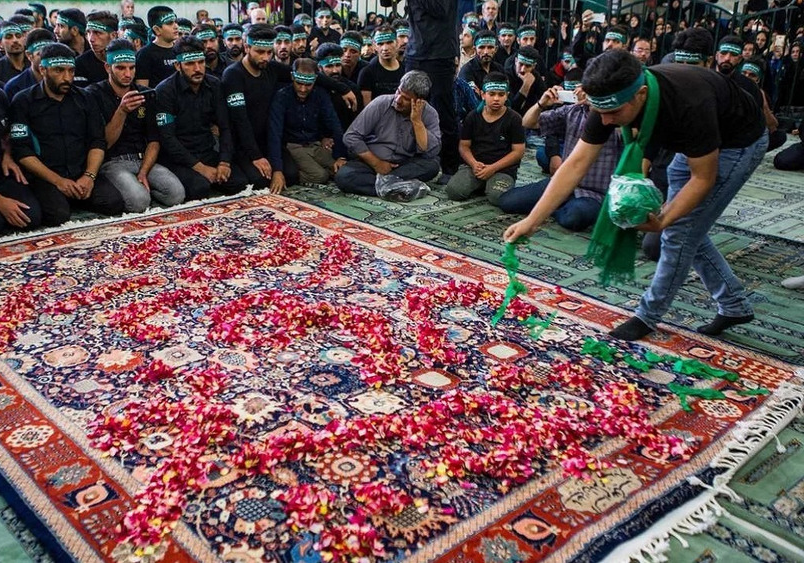
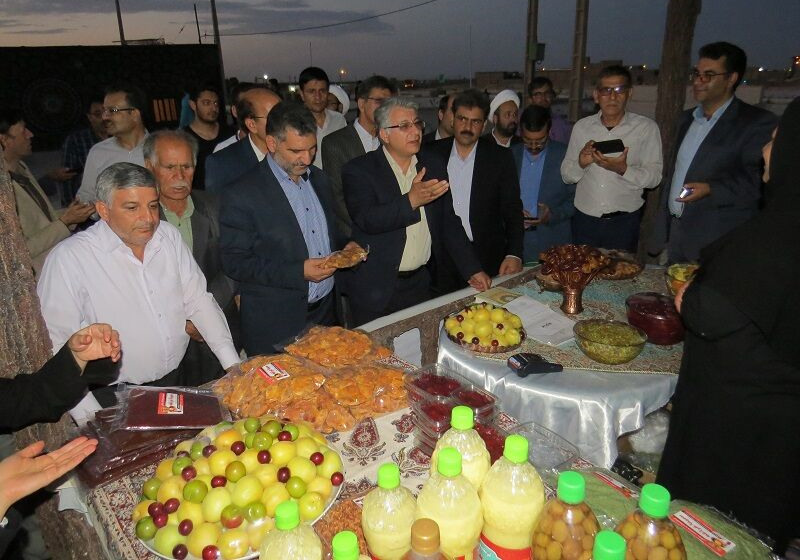
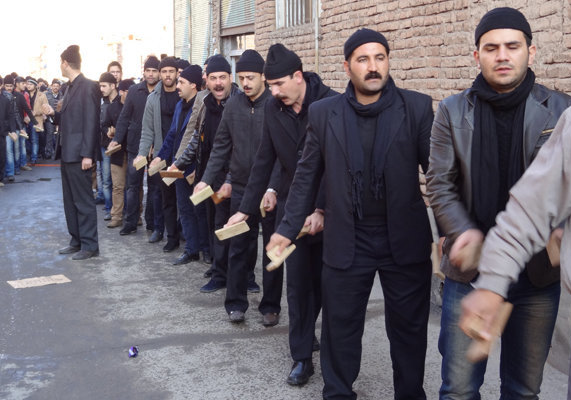
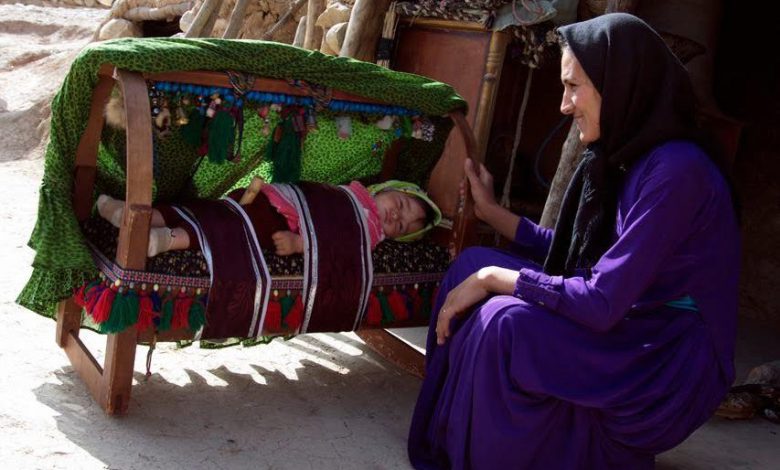
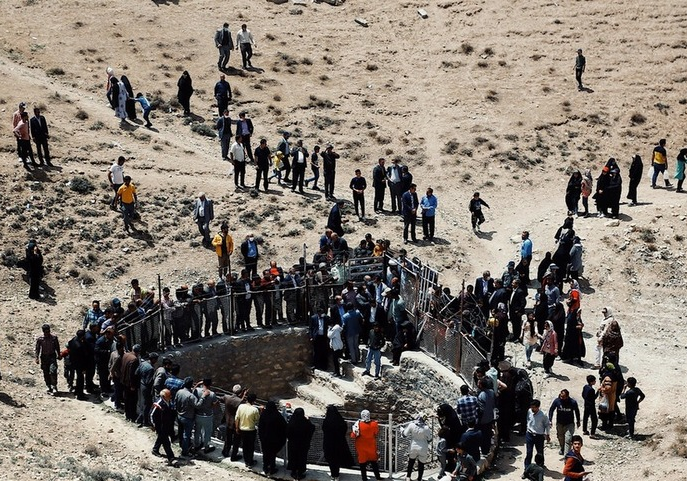
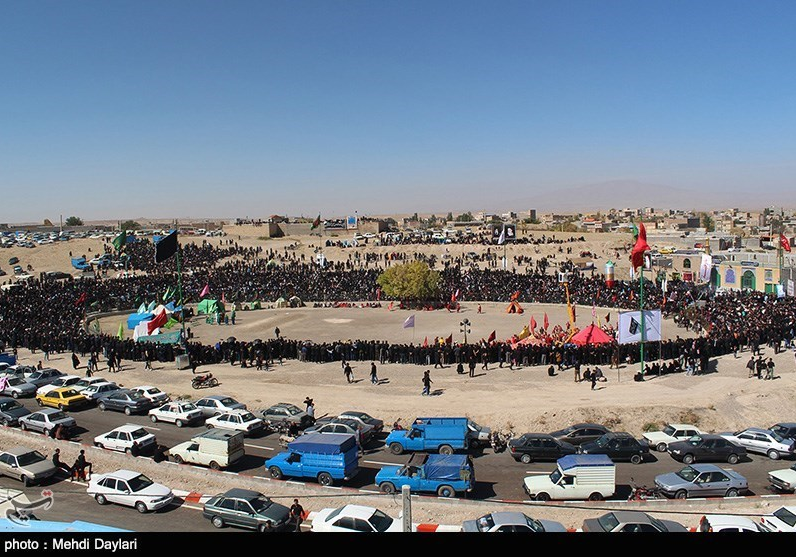
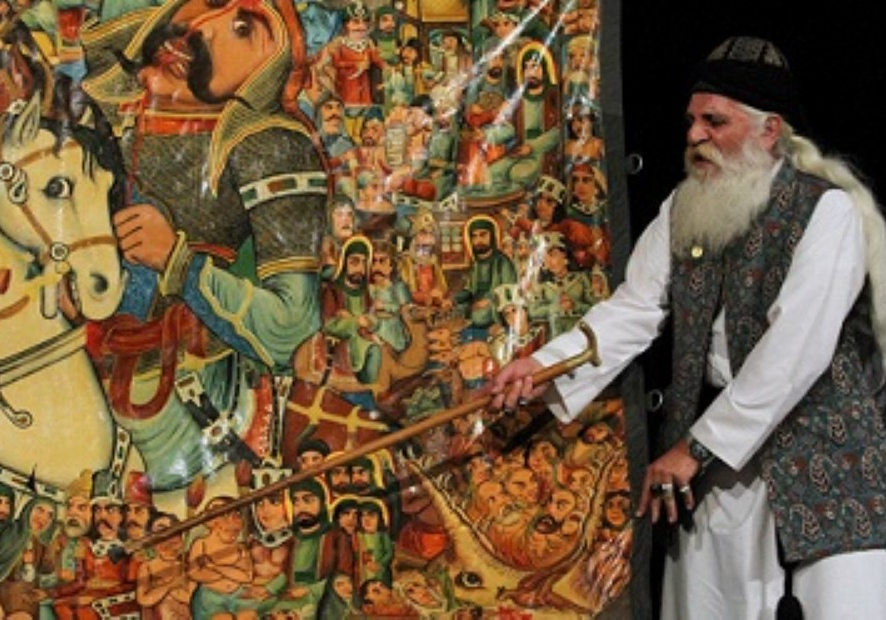
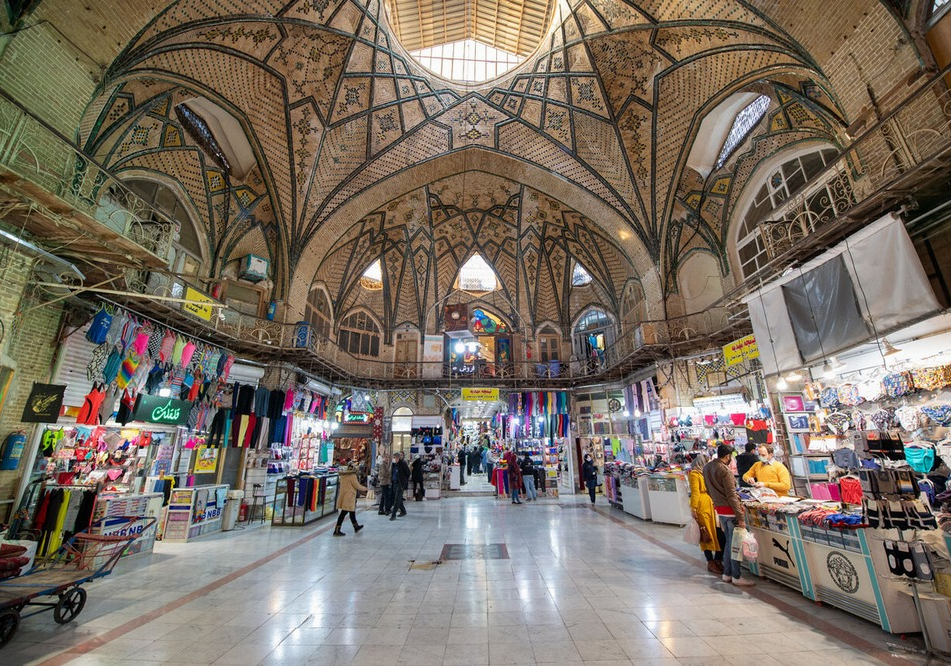
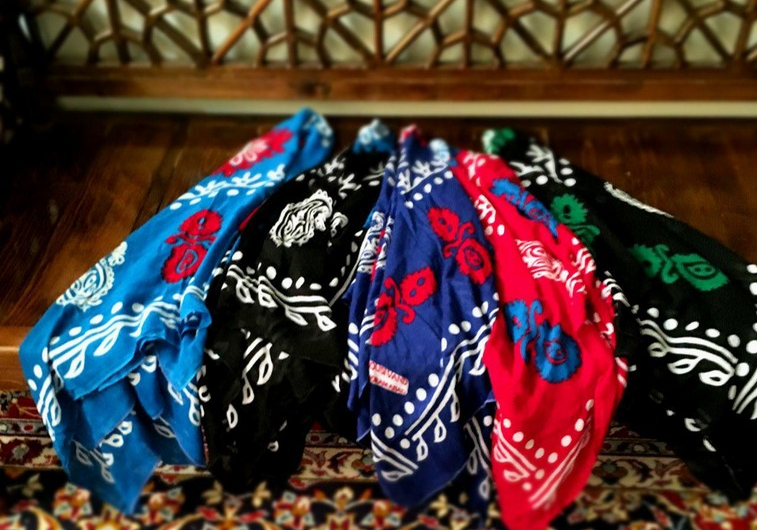
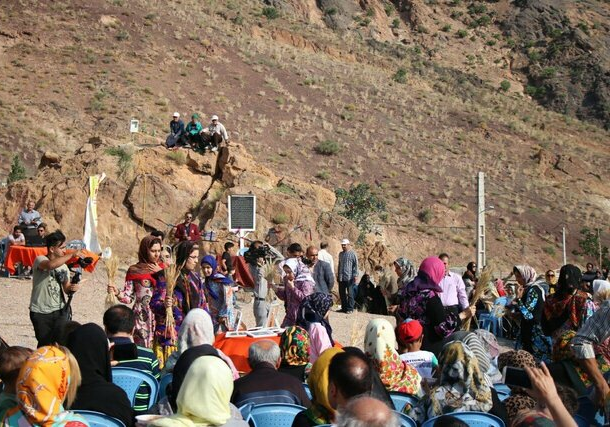
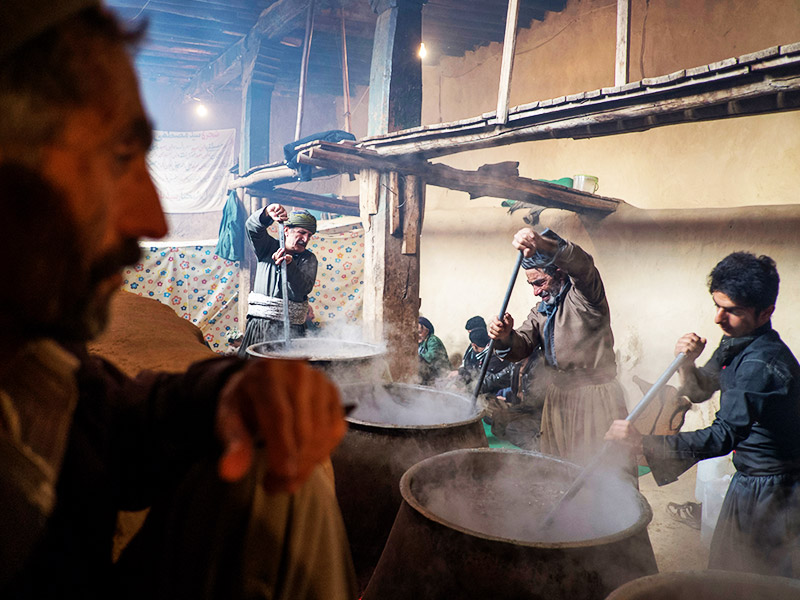
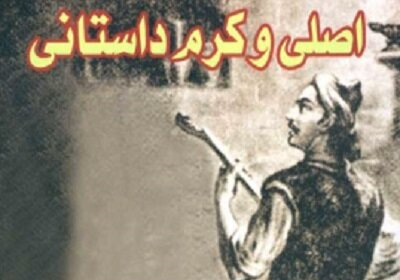
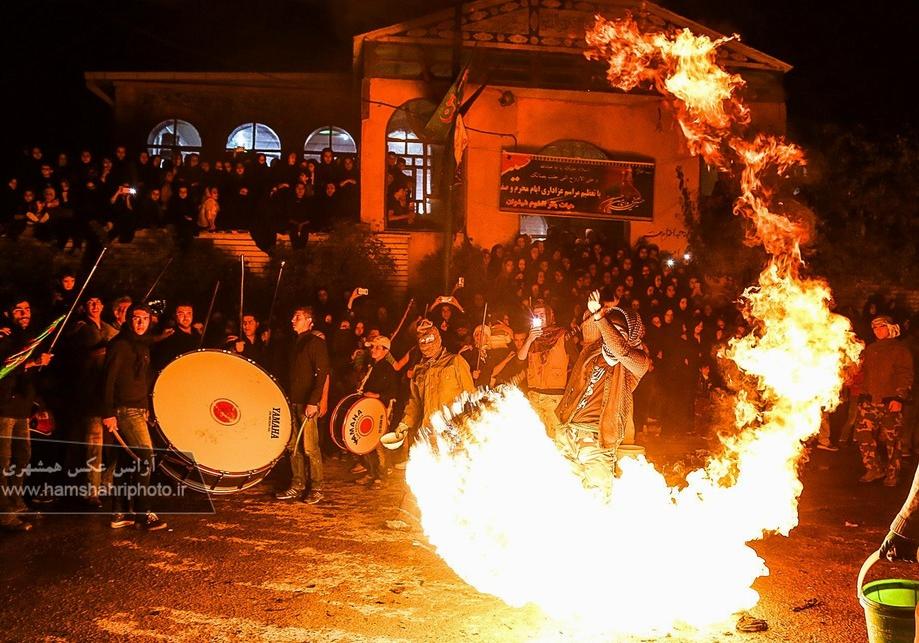
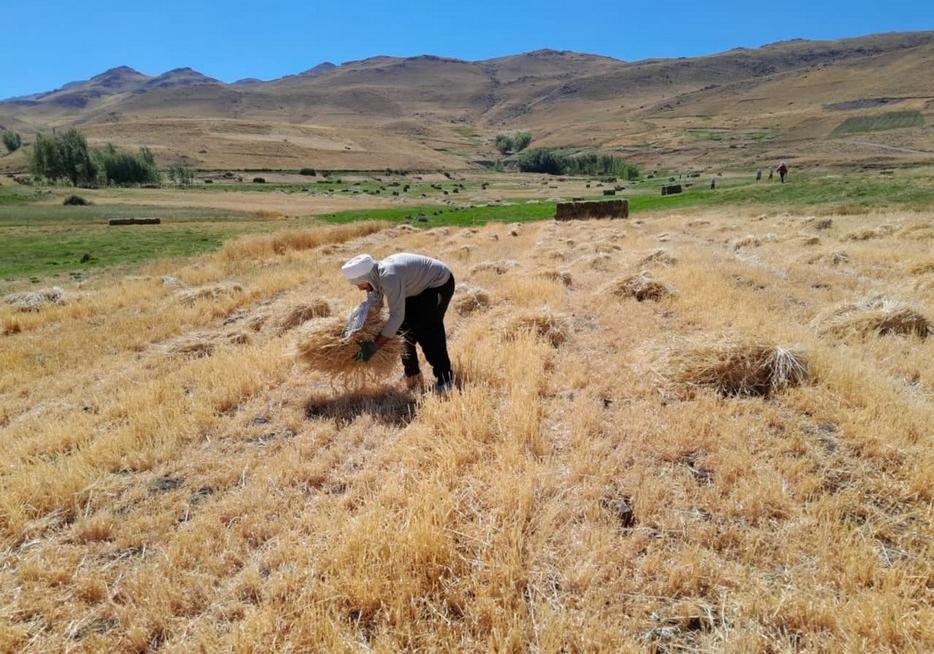
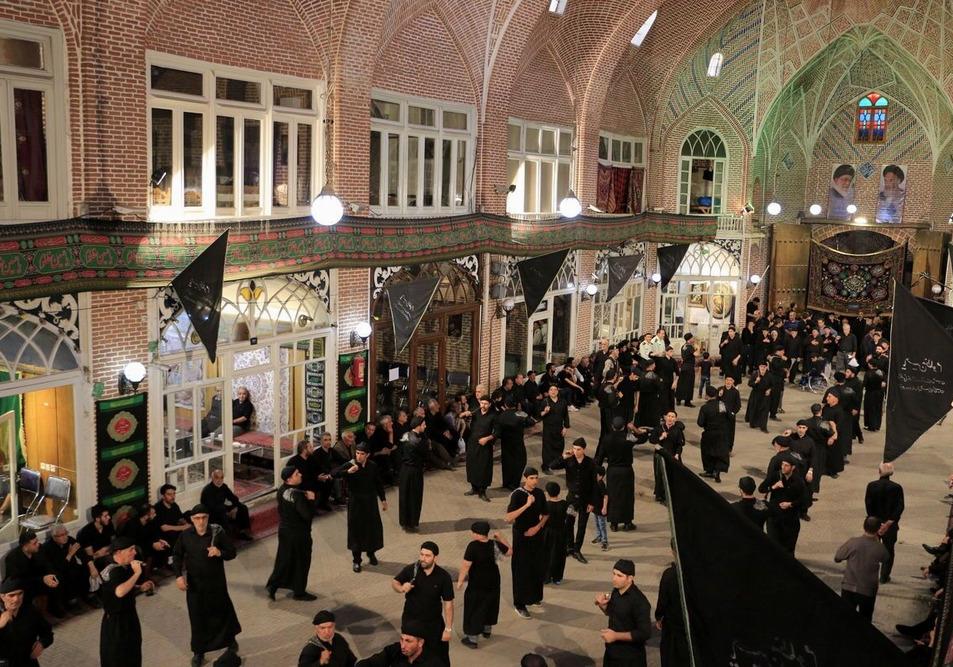
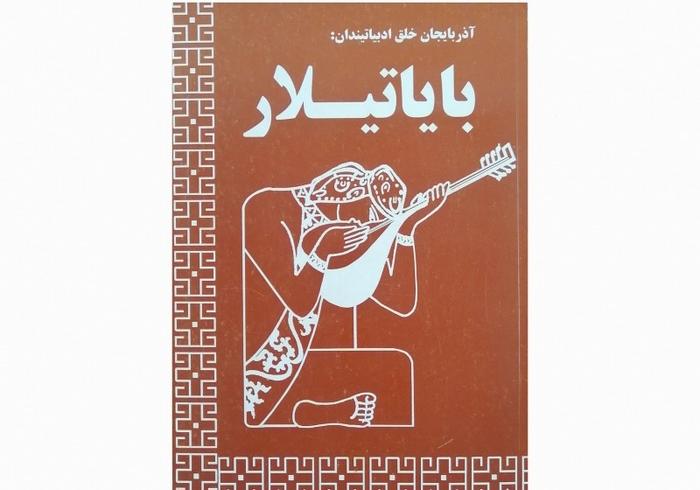
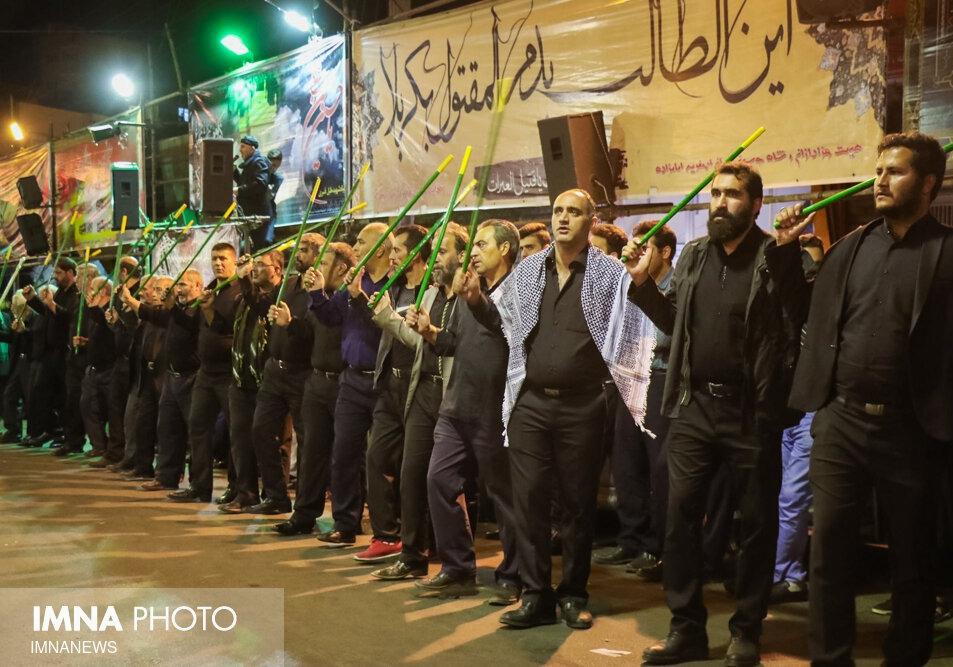

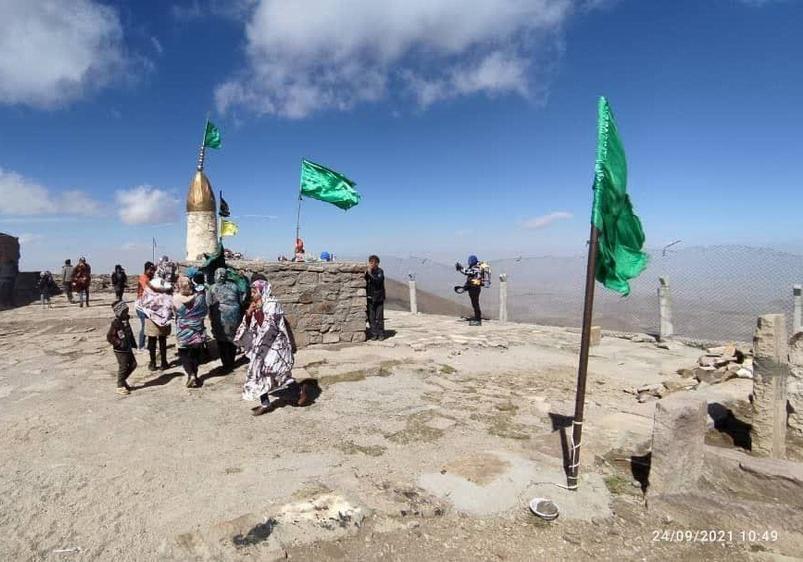
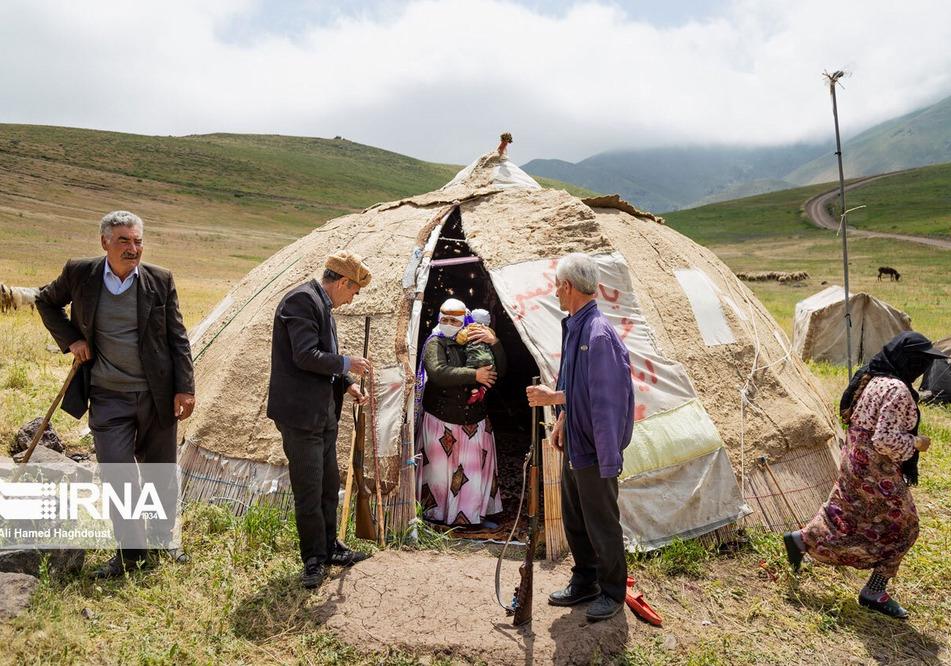
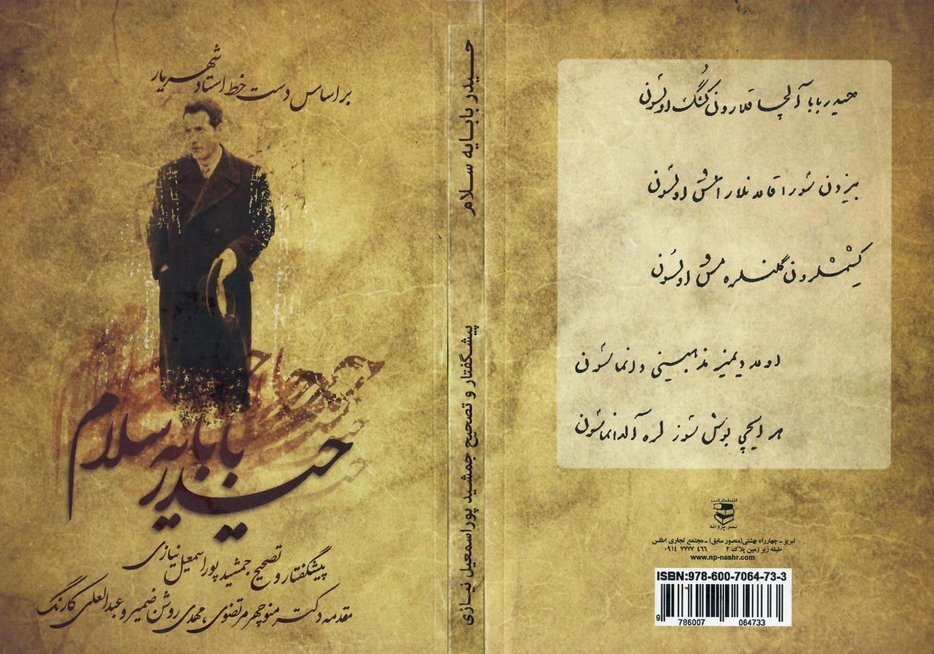
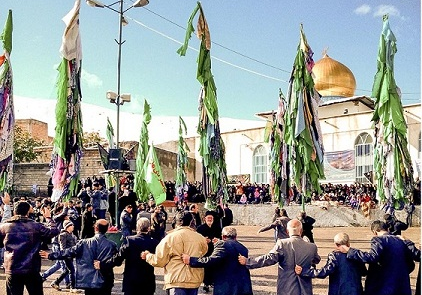
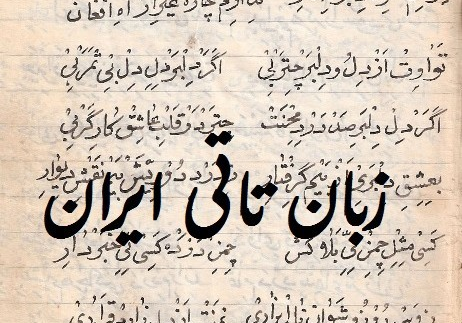
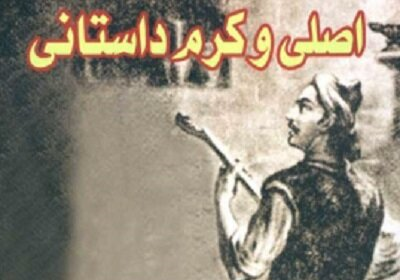
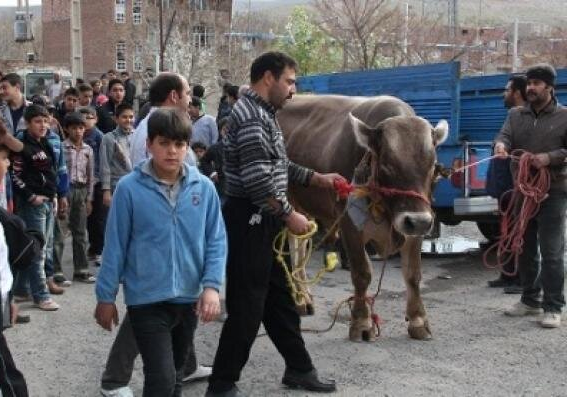
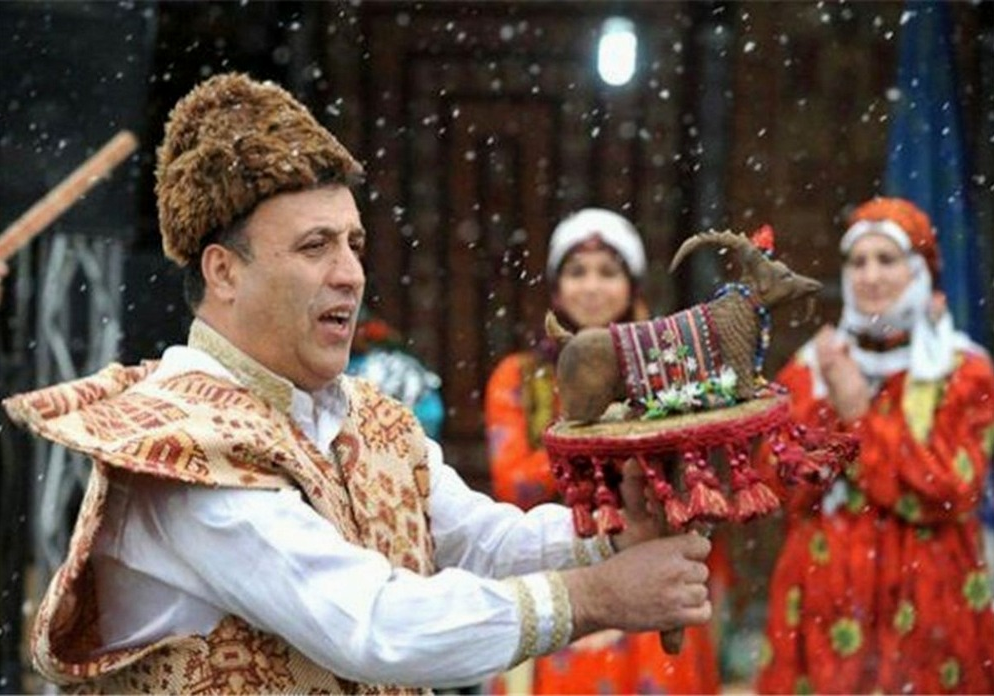
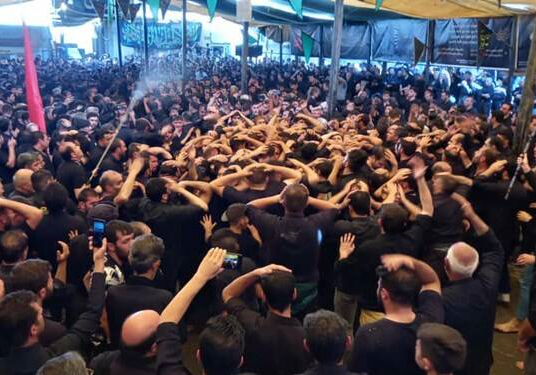
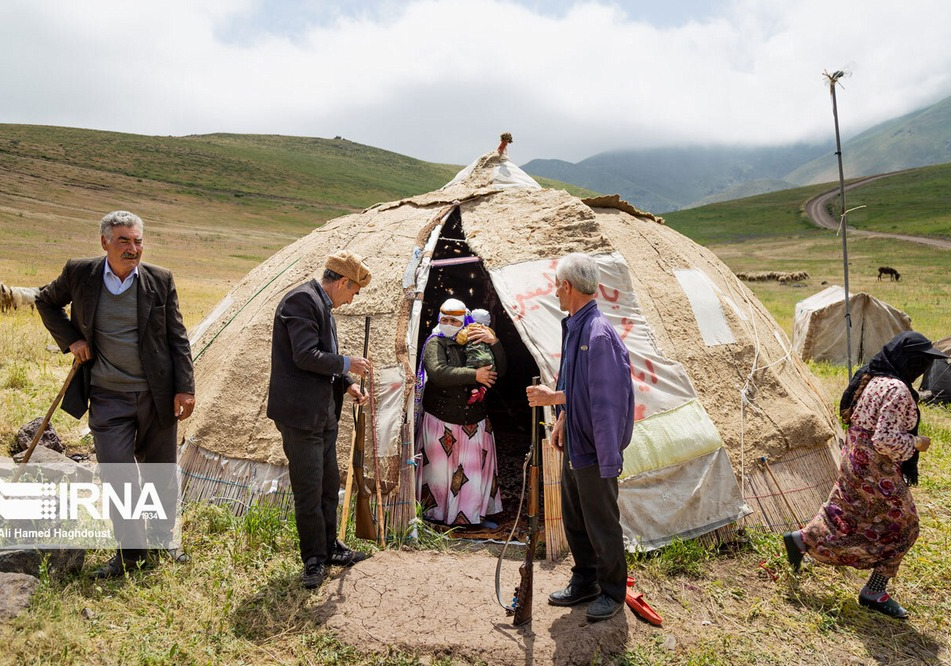
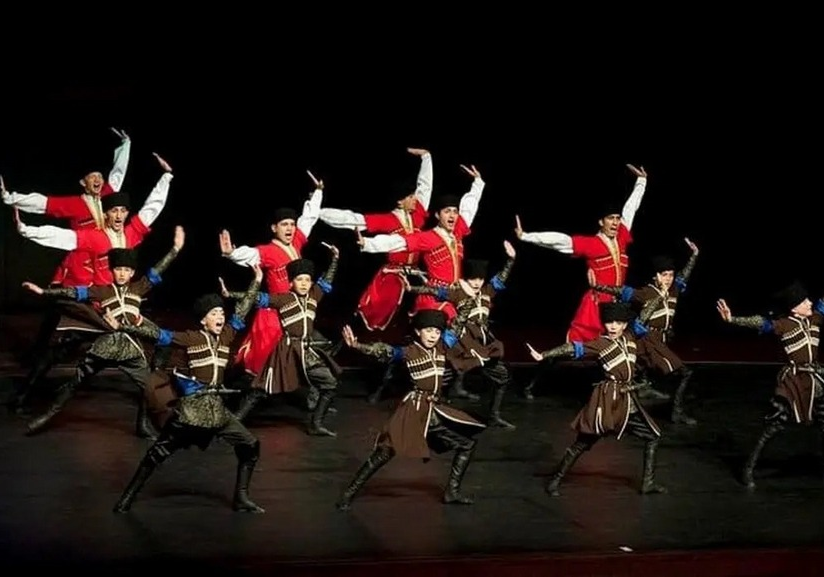
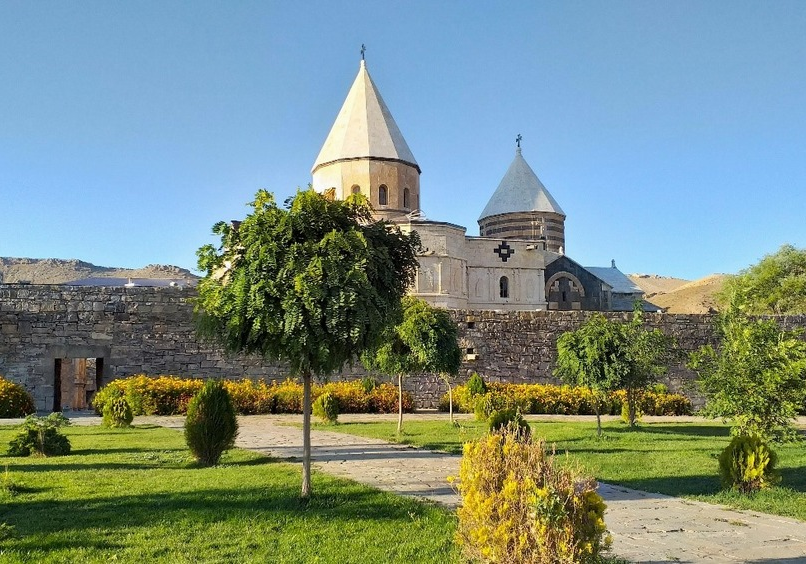

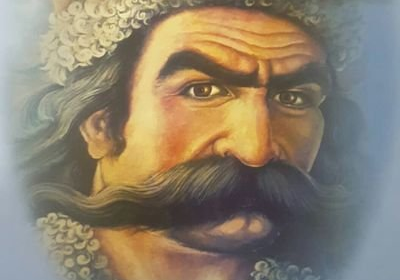
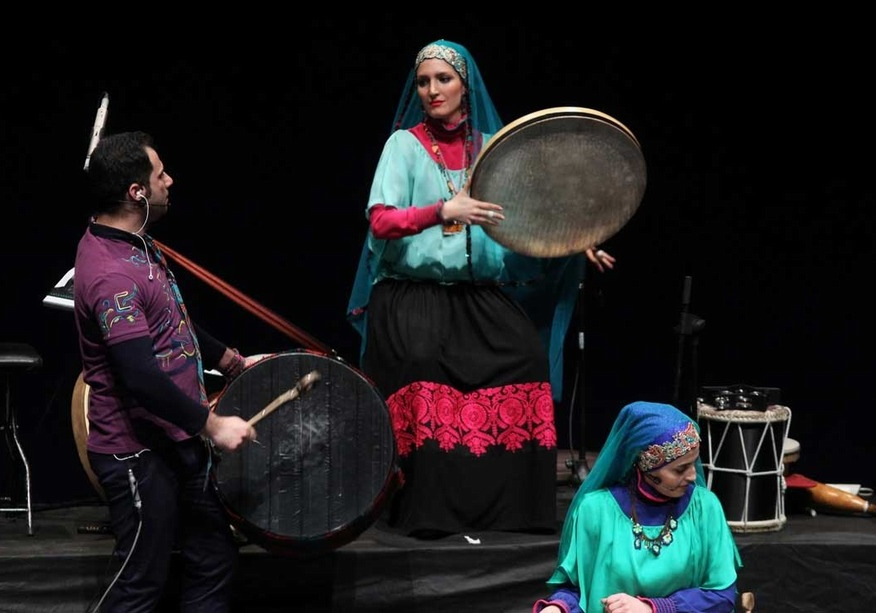
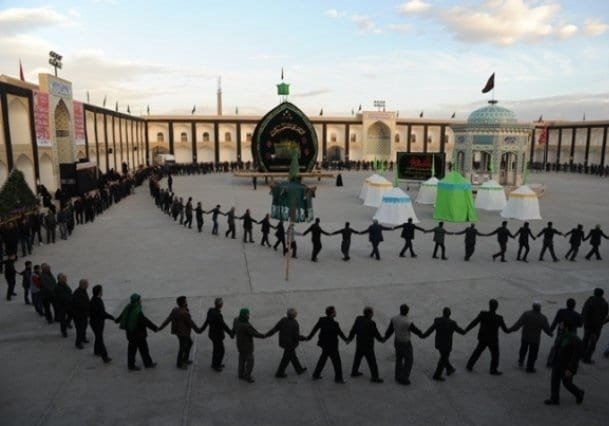
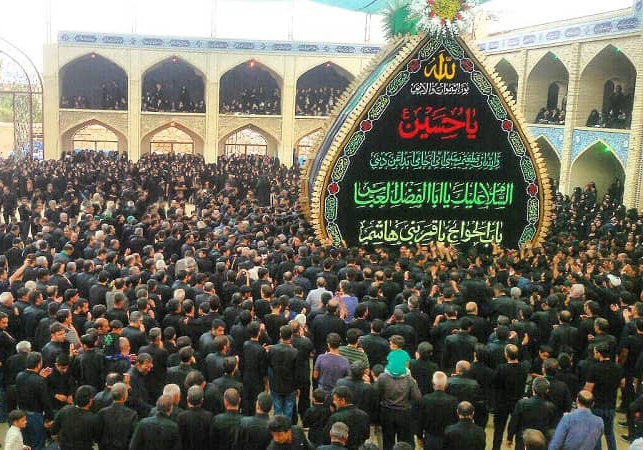
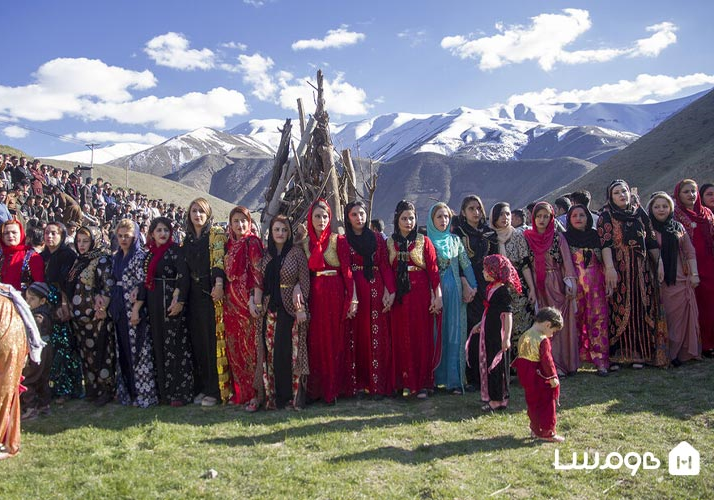
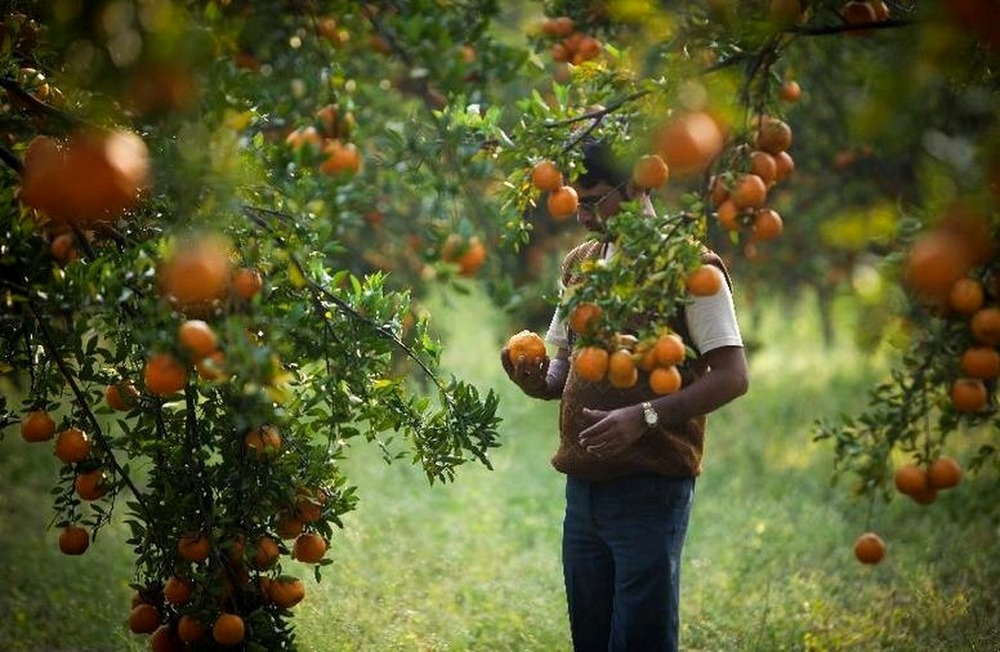
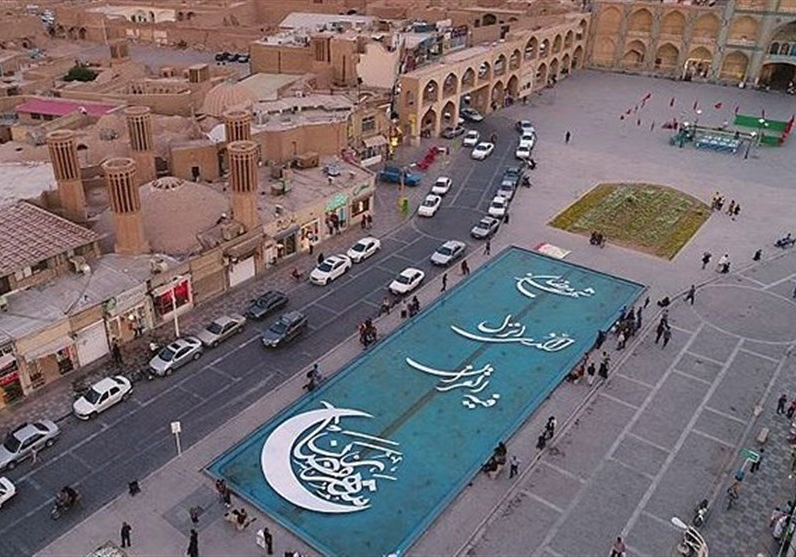
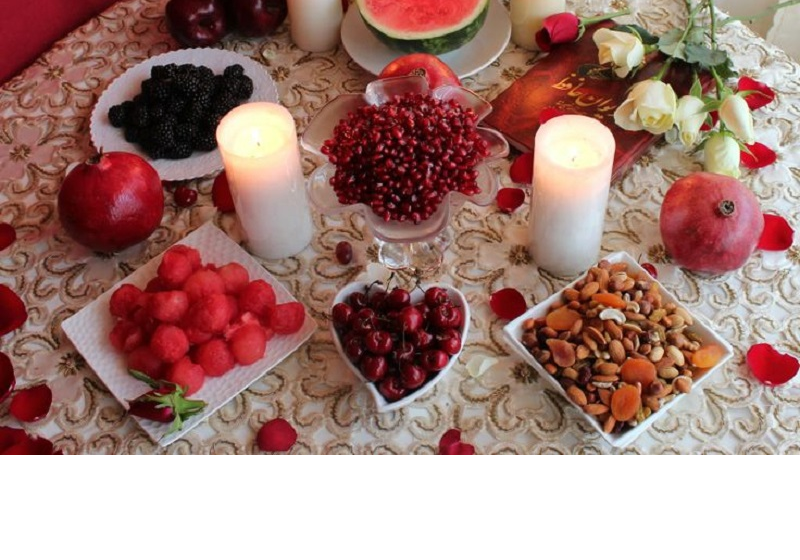
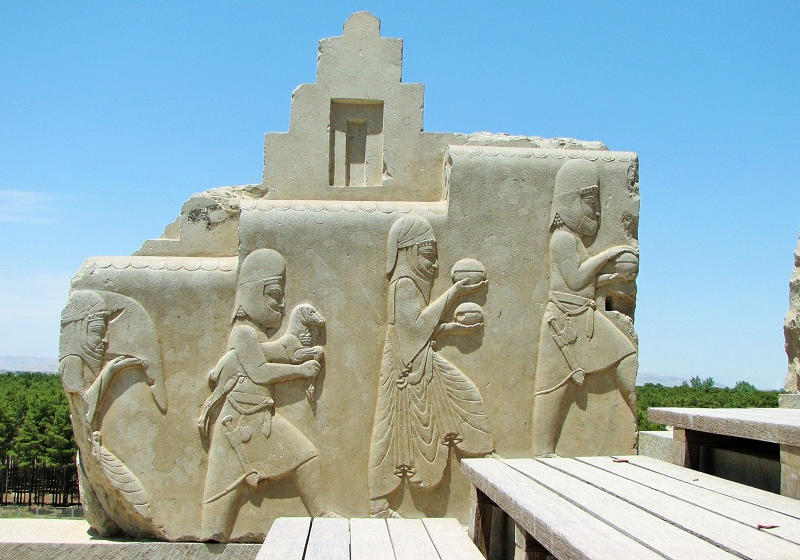
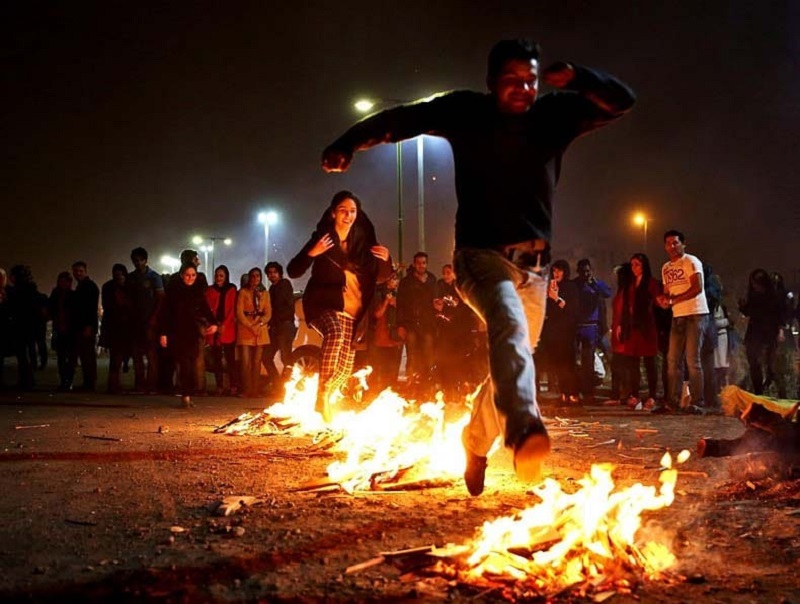
.jpeg)









.jpg)
_1.jpg)
-5-th4_3.jpg)
